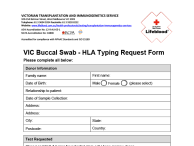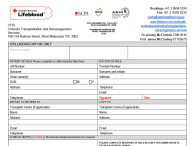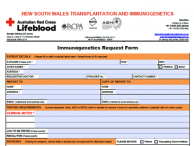Don’t have an account?
Select the donation type you’d like to make
Human neutrophils express five neutrophil specific glycoproteins on their surface known as human neutrophil antigens (HNA).
Human neutrophils do not express ABO or other red cell antigens but they can express HLA Class 1 and 2 antigens when activated.
Antibodies to HNA have been implicated in:
- febrile hon-haemolytic transfusion reactions (FNHTR)
- transfusion-related acute lung injury (TRALI)
- neonatal alloimmune neutropenia
- autoimmune neutropenia, and
- immune neutropenia after bone marrow transplant.
Neonatal alloimmune neutropenia is caused when maternal antibodies attack the fetal neutrophils. HNA-1a, HNA-1b and HNA-2 antigens are implicated in this condition.
Autoimmune neutropenia in adults may be idiopathic or secondary due to rheumatoid arthritis, systemic lupus erythematous or bacterial infections. In infancy, the autoantibody is directed against HNA-1a or -1b in about 30% of cases. The condition is usually self-limiting and resolves within 7–24 months.
The detection of neutrophil antibodies requires specialist testing such as the granulocyte agglutination test (GAT), granulocyte immunofluorescence test (GIFT) and HNA typing.





